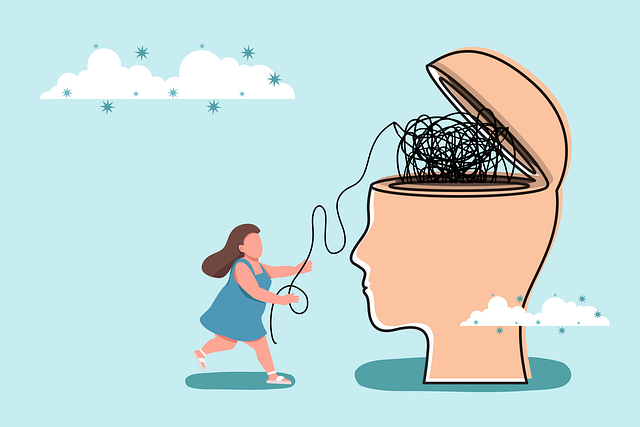Mental wellness is a vital aspect of overall well-being, encompassing emotional health, resilience, and coping abilities. In today's fast-paced world, adults often neglect self-care due to work and parenting responsibilities, impacting daily functioning and relationships. Therapy for Adults can help manage stress and develop healthy coping mechanisms through personalized self-care practices. Parenting skills significantly influence mental wellness; incorporating self-care into routines, such as relaxation time, mindfulness, and empathy, is crucial. Building a strong mental wellness practice involves dedicated effort, consistent habits, and leveraging resources like therapy and podcasts for efficient time management and stress reduction.
Developing a mental wellness self-care routine is essential for maintaining overall well-being, especially in today’s fast-paced world. This article guides adults through a transformative journey, exploring the significance of mental wellness and its impact on daily life. We’ll delve into identifying personal needs, incorporating effective parenting skills as a therapeutic tool, and building sustainable practices. By combining evidence-based strategies with self-care techniques, you can enhance your mental resilience and foster a healthier mind. Embrace these practices to prioritize your mental wellness and discover a balanced life.
- Understanding Mental Wellness and Its Impact on Daily Life
- Identifying Personal Self-Care Needs for Adults
- Incorporating Parenting Skills into a Self-Care Routine
- Building and Maintaining a Sustainable Mental Wellness Practice
Understanding Mental Wellness and Its Impact on Daily Life

Mental wellness is a vital aspect of our overall well-being, influencing how we think, feel, and act daily. It encompasses emotional health, resilience, and the ability to cope with life’s challenges. Understanding mental wellness involves recognizing that it’s not just the absence of mental illness but a state of flourishing where individuals can thrive and lead fulfilling lives. This awareness is crucial, as mental health issues, if left unaddressed, can significantly impact daily functioning, relationships, and overall quality of life.
In today’s fast-paced world, adults often juggle demanding careers, family responsibilities, and numerous commitments, leaving little time for self-care. Parenting skills play a significant role in maintaining mental wellness as it involves managing stress, fostering healthy relationships, and promoting positive coping mechanisms. Moreover, building empathy within personal interactions can create a supportive network, enhancing one’s ability to navigate life’s complexities. Through effective self-care practices tailored to individual needs, adults can cultivate resilience, improve their parenting skills, and access therapy when required, ensuring they prioritize their mental wellness journey.
Identifying Personal Self-Care Needs for Adults

Identifying Personal Self-Care Needs is a crucial step in fostering better mental health for adults. In today’s fast-paced world, it’s easy to neglect one’s emotional well-being, especially when juggling responsibilities such as work and parenting. Therapy for Adults can provide valuable insights into managing stress and cultivating healthy coping mechanisms. Through therapy, individuals learn to recognize their unique triggers and develop personalized self-care practices tailored to their needs.
Parenting skills play a significant role in this process. For many adults, the demands of raising a family can significantly impact mental wellness. Incorporating self-care into daily routines becomes essential for maintaining balance. This may include setting aside dedicated time for relaxation, engaging in physical activities that promote stress relief, or practicing mindfulness techniques to enhance emotional regulation. A comprehensive Risk Assessment for Mental Health Professionals can guide individuals toward trauma support services if needed, ensuring a holistic approach to self-care routine development.
Incorporating Parenting Skills into a Self-Care Routine

Incorporating parenting skills into your self-care routine can seem counterintuitive, but it’s a powerful strategy for enhancing mental wellness. Many adults have been nurturing others since their early years, and applying these caregiving techniques to themselves can be transformative. Therapy for adults often incorporates parenting skills as a means of promoting self-compassion, effective communication strategies, and emotional regulation—essential components in burnout prevention strategies for healthcare providers who may be at high risk due to the demanding nature of their work.
By integrating practices such as mindfulness, empathy, and setting boundaries, individuals can cultivate a healthier relationship with themselves, mirroring the nurturing they’ve provided others throughout their lives. This self-parenting approach is not just about treating immediate mental health concerns but also about building resilience, ensuring long-term mental health policy analysis and advocacy begins with individual wellness.
Building and Maintaining a Sustainable Mental Wellness Practice

Building a robust mental wellness practice is an ongoing journey that requires dedication and consistency. It’s about creating sustainable habits that nurture your mind, much like cultivating a garden needs regular care and attention to thrive. Start by identifying areas in your life that demand focus—whether it’s managing stress, improving sleep, or enhancing relationships. Incorporate practices such as mindfulness meditation, regular exercise, or keeping a gratitude journal into your daily routine; these tools can be powerful allies in supporting your mental health.
Consider therapy as an integral part of this journey, offering valuable insights and coping skills development. For parents, integrating self-care into hectic schedules is essential for maintaining mental wellness. The Mental Wellness Podcast Series Production highlights the importance of prioritizing personal well-being while providing tips on efficient time management and stress reduction techniques. Additionally, Social Skills Training can be beneficial in fostering healthier interactions, which significantly contributes to an individual’s overall mental wellness.
Developing a mental wellness self-care routine is a proactive approach to enhancing overall well-being. By understanding the impact of mental health on daily life and identifying personal needs, individuals can create sustainable practices that incorporate essential skills like those learned in therapy for adults. Integrating parenting skills into self-care routines fosters resilience and emotional intelligence, enabling folks to navigate life’s challenges with greater ease. Remember that building a robust mental wellness practice is an ongoing process, requiring commitment and flexibility. Embrace the journey, celebrate small victories, and adapt as needed to cultivate a vibrant and fulfilling life.












